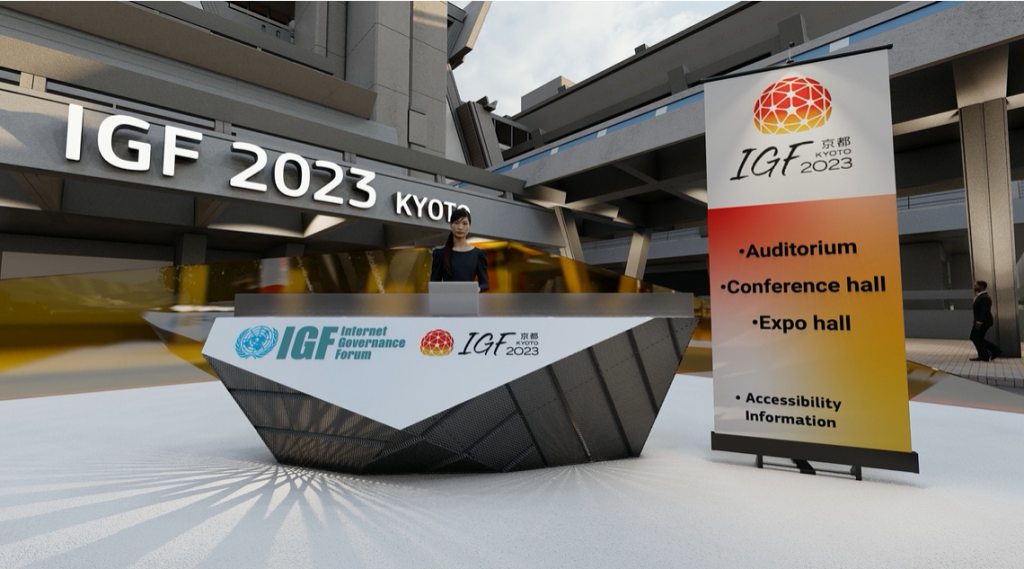
































The Main Session on Sustainability and Environment at the IGF 2023 brought together a panel of experts and thought leaders to explore the intricate interplay between digital technologies, environmental conservation, and sustainable development. This dynamic and thought-provoking session delved into the multifaceted challenges and opportunities that arise at the nexus of the digital age and environmental protection.
Dulce Soares highlighted the need for a more inclusive and sustainable approach to digitalisation, shedding light on internet infrastructure and usage challenges in Timor Leste. She stresses the role of the private sector as a critical contributor to mitigating the climate crisis and draws attention to the negative environmental consequences of the structuralist business model. To address all of the issues at hand, Soares encourages the joint efforts of various private and governmental sectors, as well as international agencies.
Besides repeatedly stressing the significance of international cooperation to achieve a more sustainable digitalisation process, the analysis also highlights the need for bridging the gap in the development of sustainability standards. It is said that this factor could significantly contribute to the acceleration of the sustainable digitalisation process. With regards to climate change, special attention should be drawn to the carbon emissions of small and medium-sized businesses and the cooperation between organisations specialised in AI development and environmental protection agencies. It is proposed that a stronger link between environmental policy making and internet governance would contribute immensely to sustainable digitalisation.
Kemely Camacho discussed the integration of social and environmental movements in the digitalisation process. The diversification of environmental and cultural knowledge is encouraged, as well as the need for digital technology to benefit society as a whole rather than specific individuals. The consumption and production of digital technologies should bear responsibility for the sustainable development goals, and all important stakeholders should connect and work together to ensure a more well-rounded approach to resolving the mentioned issues.
Maike Lukien's analysis delves into the importance of standards and sustainability in science diplomacy. She emphasises the need for globally applicable standards and discusses the European product tagging initiative, which empowers consumers to make informed choices. The analysis highlights the necessity of adaptive policies, multidimensional collaboration, and accountability frameworks for achieving sustainability.
Axel Klahake's discussion focuses on the divide between sustainability and digital communities. He calls for increased collaboration and cross-sector efforts to shape the digital sustainability agenda. Axel highlights the significance of greening the entire value chain, leveraging digital technologies for a carbon-free economy, and understanding major trends in digital sustainability.
David Souter underscores the urgency of stronger dialogue between digital and environmental experts. He stresses the importance of incorporating environmental sustainability into digital policies and developing a circular digital economy. David emphasises the need for transparent reporting, consistent measurement standards, and realistic policies that address real-world challenges.
The moderator highlights key points from the discussion, including the impact of the COVID-19 pandemic on CO2 emissions and the surge in internet usage. They highlight the potential of digital technologies in addressing climate change and the importance of setting standards and regulations. The moderator also discusses the digital divide, private sector involvement, and the need for collaborative efforts.
Mactar Seck's insights revolve around the impact of digital technology on the environment and the need for regulatory changes in the ICT sector. He mentions the UN Economic Commission for Africa's support for integrating climate change issues into national digital policies. The importance of education and awareness among decision-makers and stakeholder involvement is also highlighted. Mactar stresses the potential of digital technology in mitigating climate change and the importance of standardised features and international cooperation.
In conclusion, the Main Session on Sustainability and Environment at the IGF 2023 showcased a rich tapestry of perspectives and ideas, illustrating the intricate interplay between digital technologies and environmental sustainability. The diverse insights presented by experts and thought leaders shed light on the complex challenges and opportunities arising at the intersection of the digital era and environmental conservation.
 Etiquetas calientes:
desarrollo
Normas digitales
Etiquetas calientes:
desarrollo
Normas digitales